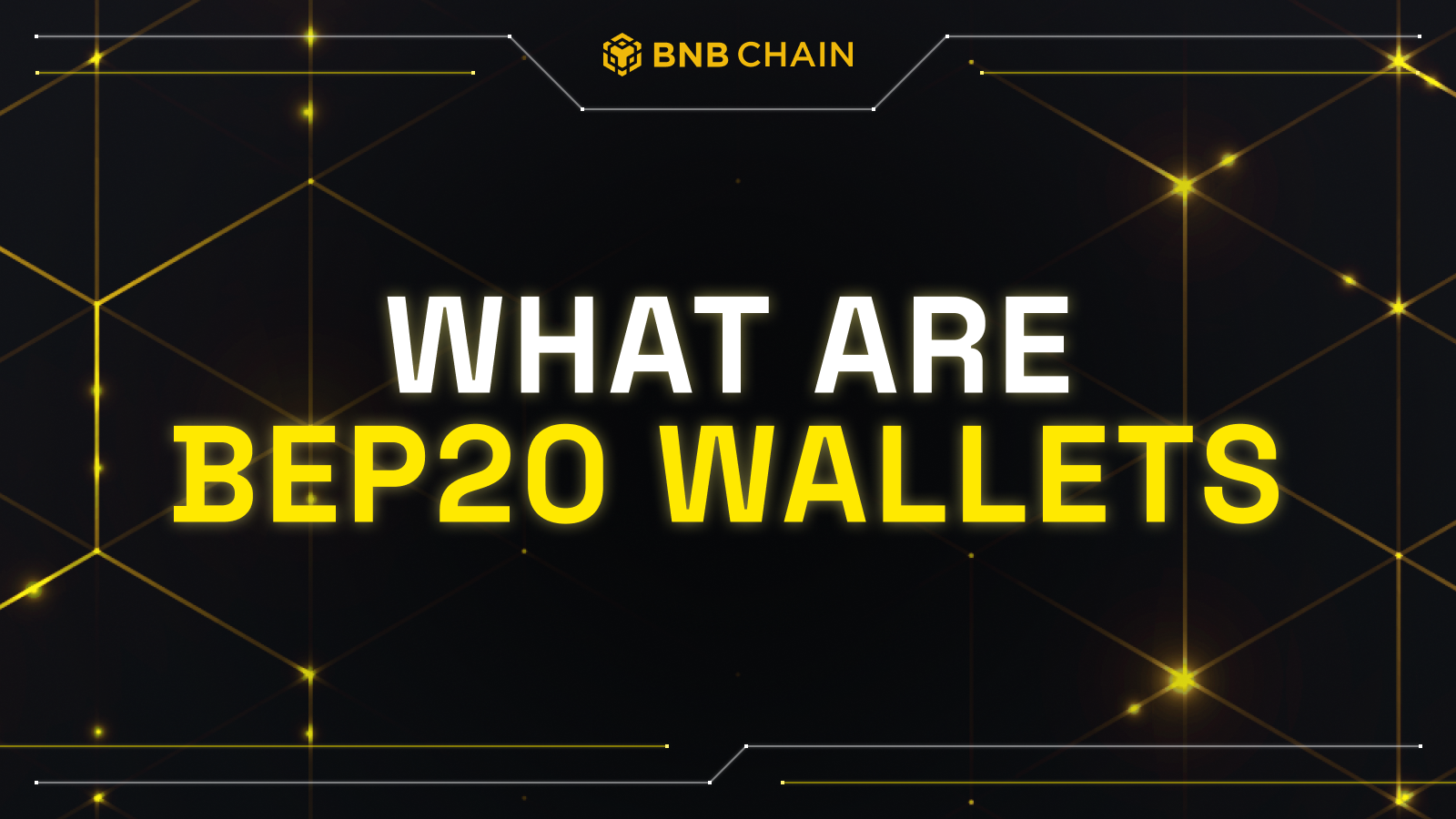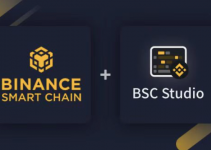Table of Contents

A BEP20 wallet is an essential tool for navigating the BNB ecosystem, designed to securely manage digital assets. It supports a broad array of cryptocurrencies and ensures seamless integration with other blockchains, amplifying its versatility. Available in both software and hardware forms, these wallets are the gateway to the vast possibilities within the BNB Smart Chain (BSC) ecosystem.
BEP20: The Gateway to BSC
The BSC is a standout in the web3 space, hosting a diverse and innovative ecosystem. It leads the pack with over 1.3 million daily active users, making it the most active Layer 1 (L1) blockchain around. BSC is built for speed, handling up to 5,000 transactions per second, and keeps costs down with an average transaction fee of just $0.03. This combination of high performance and low cost makes it an attractive platform for DeFi projects.
As such, with more liquidity and projects flowing in, the total value locked (TVL) on BSC is on an uptrend.
For those keen on exploring decentralized applications and transactions, a deep understanding of BEP20 wallets is indispensable.
What Is BEP20?
Before we talk about BEP20 wallets, it is vital to understand BEP20. BEP20 stands for “BSC Evolution Proposal” and is a token standard for creating and deploying tokens on the BSC. It defines the rules that all BEP20 tokens launched on the BSC must adhere to.
The BEP20 token standard was created to give developers a programmer-friendly and flexible format to launch tokens on the BSC while also optimizing speed and transaction costs. The token standard is a modification of the ERC20 token standard. As a result, both token standards share similarities, such as transferability requirements, divisibility standards, and the definition of total supply.
How to Use a BEP20 Wallet?
BEP20 wallets offer a user-friendly platform for managing assets, enabling seamless interaction with the BSC and other blockchains through distinct wallet addresses. These wallets are designed to support BEP20 tokens, allowing users to store, transfer, and receive them efficiently.
To get started, users create a unique BEP20 wallet address, an alphanumeric identifier for their wallet. This address facilitates the transfer of BEP20 tokens to and from the wallet. Users can send tokens by specifying the recipient’s BEP20 address and the amount they intend to transfer, followed by transaction confirmation.
Additionally, BEP20 wallet apps provide features such as transaction history review, token balance tracking, and connectivity with BSC-based decentralized applications (Dapps). This integration allows users to participate in various Dapp activities directly from their wallets, including trading, staking, and participating in token sales.
Examples of BEP20 Wallets
Here are the wallets we will be looking into:
- Binance Web3 Wallet
- MetaMask
- Rabby
- Ledger
- Trust Wallet
Binance Web3 Wallet
The Binance Web3 wallet is a self-custody crypto wallet bundled with the Binance app. The wallet is designed to simplify DeFi and make it more secure for users. The wallet allows users to securely manage their cryptocurrencies, swap tokens across blockchains, earn rewards, and interact with blockchain platforms. Some of the key features of the Binance Web3 wallet are:
- Easy To Set Up – The Binance Web3 wallet can be set up in seconds without users worrying about complex seed phrases or private keys.
- Convenience – The Binance Web3 wallet allows users to connect to the Binance Bridge and other services, enabling token swaps between blockchains at competitive rates. Additionally, users can also access decentralized applications and earn rewards.
- Self-Custody – The Binance Web3 wallet creates three separate key shares stored in different locations, such as your device and personal cloud. To access your wallet, you require at least two of the three key shares, giving you complete control over your wallet.
- Security – Transactions on the Binance Web3 wallet are secured by MPC (Multi-Factor Computation) technology. Multiple security layers minimize the risk of a single point of failure, ensuring the security of your assets. The wallet can also detect malicious contracts and potential security risks.
Get the Binance Web3 wallet here.
Trust Wallet
Trust Wallet is a decentralized and non-custodial wallet designed to empower users with complete autonomy over their private keys and seed phrases, thereby ensuring full control over their digital assets and NFTs.
As the official wallet for Binance Exchange, Trust Wallet’s compatibility extends to more than 70 blockchains, supporting an impressive array of over 10 million digital assets, including a vast range of BEP20 tokens. This expansive support makes it a versatile tool for users looking to manage a diverse portfolio from a single platform.
Trust Wallet also features in-built staking capabilities and partnerships with third-party processors for straightforward cryptocurrency purchases via debit/credit cards. With security underpinned by a PIN and backup passphrase, combined with its user-friendly interface, Trust Wallet caters to both seasoned crypto enthusiasts and newcomers alike, providing a flexible and secure platform for managing digital assets on the go.
MetaMask
Since its inception in 2016 by ConsenSys, MetaMask has emerged as a leading crypto wallet, widely acclaimed for its versatility across numerous blockchain networks. This adaptability has solidified its position within the blockchain community, making it a go-to for a broad spectrum of users.
Available as both a browser extension and a mobile app, MetaMask ensures a fluid user experience across devices, offering key features like a secure vault, easy login, and a platform for token exchange. These features consolidate MetaMask as a comprehensive tool for digital asset management.
MetaMask excels in streamlining access to blockchain applications while championing user security and autonomy. By generating passwords and keys directly on the user’s device, it ensures that individuals retain exclusive control over their data and transactions, thereby upholding stringent privacy and security standards.
MetaMask’s compatibility with multiple blockchains facilitates access to a diverse range of DeFi applications and digital assets, making it a favored option for DeFi enthusiasts. Its token swapping feature further enhances its value by offering an efficient, low-cost trading solution.
Setting up MetaMask is straightforward and can be completed in minutes on browsers like Google Chrome, Firefox, Brave, Edge, or any other Chromium-based browser, enhancing its accessibility and ease of use.
Rabby
Rabby Wallet, crafted by the DeBank team, is a popular web wallet that provides a seamless multi-chain user experience. With its capacity to support over 10,000 cryptocurrencies across 141 chains and testnets, Rabby has established itself as a comprehensive tool for DeFi
One of Rabby’s most notable features is its intelligent chain selection, which automatically aligns with the appropriate chain for any visited DeFi dApp, drawing from an extensive database. This feature significantly simplifies the user experience by eliminating the need to manually switch chains, thus ensuring a hassle-free interaction with multiple Dapps simultaneously.
Additionally, Rabby places a strong emphasis on security, incorporating innovative functionalities like pre-transaction risk assessments and balance change previews before transaction confirmation. This proactive approach to security not only enhances asset protection but also fosters a transparent and informed transaction process for users.
Rabby is available as a desktop application for Windows and Mac, an Android app, and a Chrome browser extension.
Ledger
The Ledger Nano series, encompassing the Nano S, Nano X, and Ledger Stax, are hardware wallets that offer robust solutions for users aiming to secure their cryptocurrencies, including BEP20 tokens.
These wallets, developed by the esteemed Paris-based Ledger company, are celebrated for their security, compatibility with major operating systems, and ease of use across both desktop and mobile platforms.
Users can leverage the Ledger Live app, an integral part of the Ledger ecosystem, to efficiently manage their digital assets, with support for a wide variety of BEP20 tokens, ensuring a versatile and comprehensive user experience.
What truly distinguishes the Ledger Wallets is their blend of innovative design and intuitive functionality, making them an ideal choice not only for seasoned crypto enthusiasts but also for newcomers to the digital asset space.
The Ledger devices function as a personal vault, insulating cryptocurrencies from online risks such as hacking and malware, thereby providing peace of mind to users. The seamless user interface and straightforward setup process eliminate the need for technical expertise, democratizing access to secure crypto asset management and reinforcing Ledger’s position as a leading choice in the hardware wallet market.
Which BEP20 Wallet Should I Use?
Several factors must be considered when selecting a BEP20 wallet.
- Customer support: Customer support is crucial, especially if you are a new user or have questions regarding the functioning of the wallet.
- Compatibility: The chosen wallet must be compatible with different devices and operating systems. If you access your wallet from different devices, select a wallet that offers both a desktop and mobile version.
- Security: Security is the most crucial factor when selecting a BEP20 wallet. Always select a wallet with robust security features such as encryption, two-factor authentication, and cold storage. Hardware wallets are generally considered more secure.
Conclusion
BEP20 wallets are indispensable for securely storing and managing BEP20 tokens. Among the plethora of options, Binance Web3 Wallet, MetaMask, Rabby, Ledger Nano, and Trust Wallet are solid BEP20 wallets to start you off.


